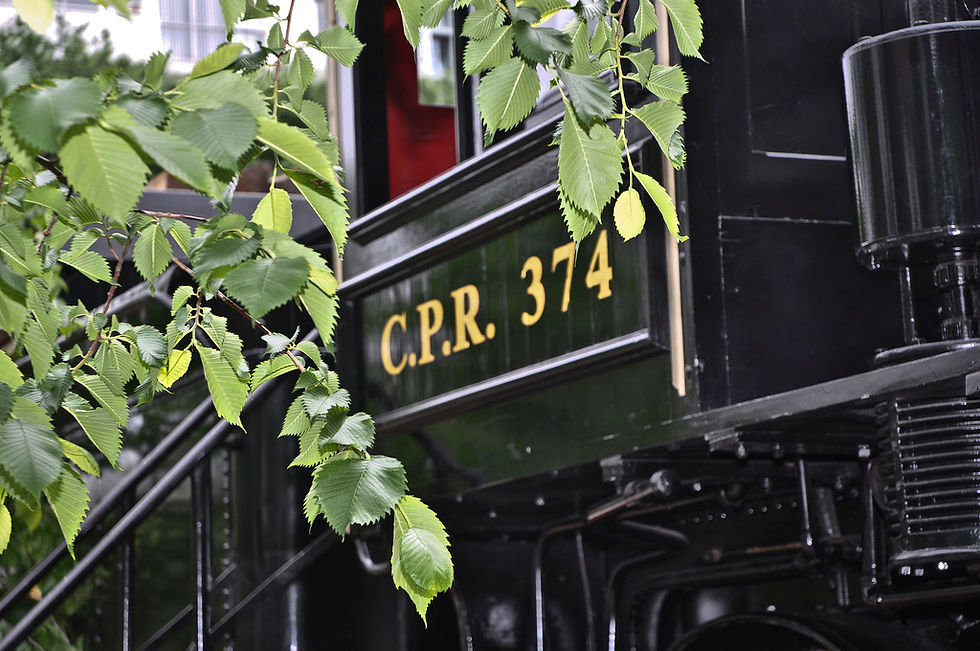Railway Series Part 5: The Railway and the History
- Glauce Fleury
- Feb 25, 2014
- 2 min read
Updated: Jun 16, 2023
Engine 374 is a landmark in our history. Not only did it pull the first Canadian transcontinental passenger train into Vancouver, but also contributed to keeping British Columbia a part of Canada. Writing about its anniversary was my first assignment for this blog. But after interviewing William Johnston, director of the West Coast Railway Association (WCRA) and the volunteer in charge of the Engine 374 Pavilion, I had in my hands an amazing series about the railway.

“I’m a bit of a history buff, so it’s a natural thing for me,” says Johnston. In the pavilion, he has met some railway fans who are experts on everything. “They look at the logo of CPR (Canadian Pacific Railway) and say, ‘that was never on this locomotive in 1886. Why have you got it there?’” They’re right. It was placed there later in recognition of CPR’s financial aid to restore the Engine. “It’s also interpretive [because] it shows the beaver as part of the symbol of our country.”
Good travellers do their homework. They go online or read the guidebooks to know where to go, what to do, what train to get on, what bus to catch and where the good hotels are. “We get tourists coming from all over the world and they come [to the Pavilion] specifically because they’re interested in transportation,” Johnston says.
In Vancouver we have a historical society, archives, libraries and museums. But not everyone’s interested in the past. “My relatives couldn’t care less about trains,” says Johnston, a Canadian of European heritage who came from Alberta in late 1950s. He believes everyone experiences a tipping point. “They’re just enjoying life and then, all of a sudden, at the age of 30 or 40 they say, ‘Gee, I wonder what life is really about, and in comes curiosity.’”
Why should we care? Johnston states that history gives us lessons. “If we don’t stand up for our rights, we’ll lose something,” he says. And he gives us a simple example by looking back to late 1930s, when the Second World War broke out. “If Britain hadn’t stood up to Nazi Germany, life would’ve been very different.” So the lesson is: it’s almost impossible to stand up for our rights if we don’t care about history.
By reading my series, you can have some ideas on how the development of the railway shaped Vancouver and, in particular, Yaletown. If there weren’t people interested in history, we wouldn’t be able to see, for instance, Engine 374 preserved and have the wonderful opportunity to recount stories of the place we live in.
Photo by Glauce Fleury
Originally published as part of the railway series by the Roundhouse Community Arts & Recreation Centre.



Comments